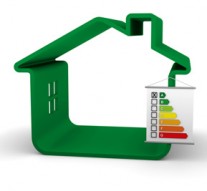
Smart housing: a threefold answer for energy savings
Energy 1 December 2014“In the midst of geopolitical uncertainty, and with energy security concerns on the rise, the European Union needs – more than ever – a common energy diplomacy, innovative energy efficiency measures and a well-integrated internal energy market. In other words… an ambitious European Energy Union.”
EU Vice-President for Energy Union Maroš Šefcovic, during the presentation of the IEA’s WEO, November 2014
Within the broad European energy efficiency policy, smart cities play a crucial role.
Smart cities do not mean just digitalisation and ICT. Indeed, the concept comprises all the urban development factors, i.e. a smart management of transportation, public administration, economy and the environment. A smart city demands civic participation to the governance and also involves citizens’ relationships, culture and education and their housing, the inner expression of human living.
Smart housing is a wide concept. Overall energy savings depend on a combination of three elements:
1. Responsive and responsible household behaviour.
2. Energy smart house design.
3. Adoption of energy smart services and appliances.
Citizens’ behaviour is the most important factor for smart housing. An aware citizen is the most valuable means to get a smart environment. A smart management of housing has to involve citizens, but up to now it has not really been made clear how households can actually be enabled to manage their energy demand in a sustainable and smart way. While the smart metering may help, more has to be done to remove the main obstacle to the development of smart housing: the absence of citizens’ awareness. Sustainability and efficiency are often spoken about but rarely implemented in the household organization.
There are two main actions which can help us making our homes smarter.
Anyone raised in a European traditional environment will remember grand parents reminding to switch off the light when out. That’s a good way to reduce waste. A recent trend, opposing the 20th century consumerism, is restoring good and healthy habits, such as: closing doors and windows to heated areas, closing curtains when heating rooms, switching off appliances when not in use, etc.
Moreover, architectural solutions based on appropriate siting, correct orientation and sized windows, domestic geothermic energy production, correct levels of insulation, ventilation and draught proofing, contribute to energy savings.
It is generally believed that investments for energy renovation in housing exceed the benefits of a reduction in energy bills. Actually, in most cases, careful considerations at the design stage can add energy smart features at no additional cost. Those people acquainted with feng shui know that room orientation and layout are a virtually zero-cost investment for our household. Besides philosophical beliefs, correct orientation and room layout, appropriate sizing and placement of windows, provision of natural ventilation, and, where possible, use of heavyweight building materials to provide thermal mass, improve the energetic performance of residential buildings. Other construction aspects such as insulation and energy smart heating systems and hot water systems add a small amount to the initial cost of building or renovating, but will quickly pay for themselves with reduced running costs.
Thus, the principles of energy smart house design are simple, practical and cost little or nothing to put into practice while they make our home smart.
The main, and definitely the latest, action is the implementation of new technologies to enable us to adopt habits in line with the principle of “aware consumption”.
The introduction of smarter technologies for domestic appliances are improving savings and reducing costs. Smart domestic appliances are all those pioneering electrical devices that consume less, interact one another and tend to work when the public electric network is less charged to avoid peak demands. Smart housing needs public policies as well as citizens’ commitment: in order to get a commercial popularity of those smart appliances, public incentive mechanisms, which collect part of the benefits within the electricity sector and direct them to the smart households, are mandatory. Moreover, the spread of smart metering allow households to manage their electricity consumption (and production).
To conclude, smart housing has to be the result of a concerted action, where public policies cooperate with private initiatives, for the sake of our households, but also of our European economy in its path towards the recovery after the current crisis.







